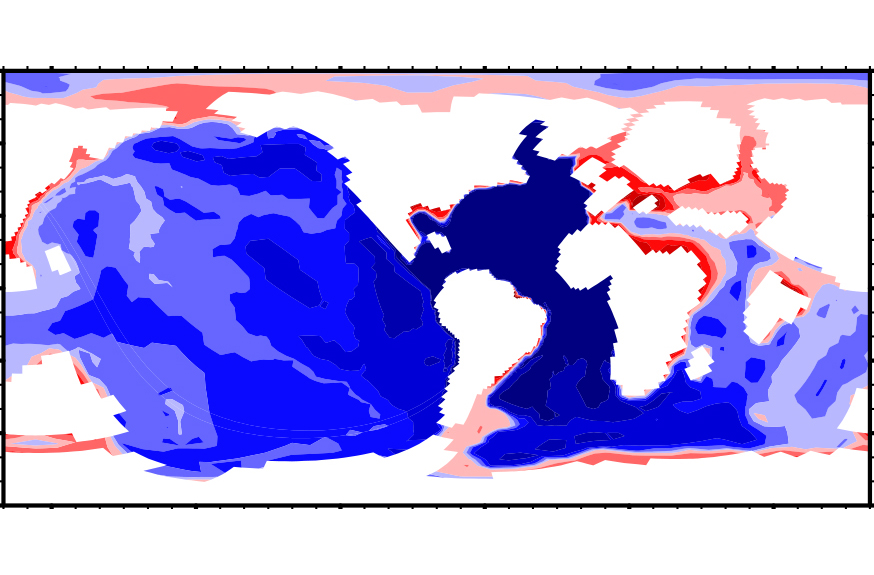Contribution to understand the long‐term response of the ocean carbon cycle to climate change

The PETM was a transient, carbon‐induced global warming event, considered as the closest analog to ongoing climate change. Impacts of a decrease in deep water formation during the onset of the PETM suggested by proxy data on the carbon cycle have remained unexplored. Using an Earth System Model, the authors find that changes in overturning circulation drive the deoxygenation and carbonate dissolution changes that are found in the sediment record.
This mechanism works as follows. Weakening of the Southern Ocean deep water formation and enhancement of ocean stratification driven by global warming cause an asymmetry in carbonate dissolution between the Atlantic and Pacific basins suggested by proxy data. Reduced ventilation results in accumulation of remineralization products (CO2 and nutrients) in intermediate waters, thereby lowering O2 and increasing CO2. As a result, carbonate dissolution is triggered throughout the water column, while the ocean surface remains supersaturated. The authors suggest that reorganization of ocean circulation and concomitant metabolic CO2 accumulation will likely become increasingly important in the future warming climate, on centennial to millennial timescales.
More information
EOS: https://eos.org/research-spotlights/explaining-ocean-acidification-patterns-during-ancient-warming
Original publication
Ilyina, T. and M. Heinze (2019) Carbonate Dissolution Enhanced by Ocean Stagnation and Respiration at the Onset of the Paleocene‐Eocene Thermal Maximum. https://agupubs.onlinelibrary.wiley.com/doi/full/10.1029/2018GL080761
Contact
Dr Tatiana Ilyina
Max Planck institute for Meteorology
Phone: +49 (0) 40 41173 164
Email: tatiana.ilyina@mpimet.mpg.de
